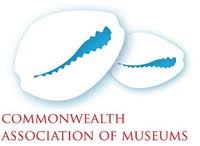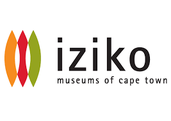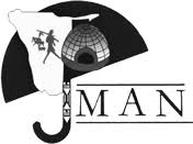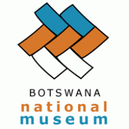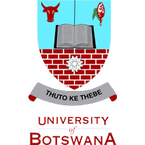The Commonwealth Association of Museums (CAM) is an international NGO based in Edmonton, Canada. Established in 1974 as an accredited Commonwealth Organisation, CAM is also an Affiliated Organisation of the International Council of Museums (ICOM). CAM’s focus is on post-colonial museology and particularly on how museums can use their resources – their collections, exhibitions, programmes, and expertise – to address the UN Sustainable Development Goals. CAM organises triennial international conferences, semi-annual regional workshops on local priorities, leads or participates in special projects, offers a distance learning programme Certificate in Basic Museum Studies and an international internship programme for young Canadian graduates to work in Commonwealth museums, and produces occasional publications and a bimonthly newsletter. Working primarily in developing Commonwealth nations and Indigenous communities, CAM supports a vital network of museologists throughout the Commonwealth.
For more information visit their website: http://www.maltwood.uvic.ca/cam/
For more information visit their website: http://www.maltwood.uvic.ca/cam/
Iziko Museums of South Africa (Iziko) is a declared national heritage institution established as a flagship museum bringing together 11 museums under a single governance and leadership structure. Iziko is governed by a Council appointed by the Minister of Arts and Culture.
The South African Museum was founded in 1825 and houses more than one and a half million specimens of scientific importance. The collections now range from fossils almost 700-million years old to insects and fish caught last week. The museums seeks to educate visitors provide a better understanding of the earth and its biological and cultural diversity, past and present.Iziko Museums of South Africa museums are African museums of excellence that empower and inspire all people to celebrate and respect our diverse heritage.
For more information visit their website: https://www.iziko.org.za/museums/south-african-museum
The South African Museum was founded in 1825 and houses more than one and a half million specimens of scientific importance. The collections now range from fossils almost 700-million years old to insects and fish caught last week. The museums seeks to educate visitors provide a better understanding of the earth and its biological and cultural diversity, past and present.Iziko Museums of South Africa museums are African museums of excellence that empower and inspire all people to celebrate and respect our diverse heritage.
For more information visit their website: https://www.iziko.org.za/museums/south-african-museum
The Museums Association of Namibia (MAN) is a Non-Governmental Organisation representing museums and heritage institutions throughout Namibia. The Museums Association of Namibia supports and encourages the establishment and development of museums throughout Namibia, actively seeks to encourage links between museums and other partners to enhance their role as educational resources and tourist attractions, provides training to museum workers and encourages young people to consider a career in the heritage sector through an internship scheme. MAN also actively participates in international bodies such as ICOM and AFRICOM to ensure that issues of concern to Namibia are raised at this platform. MAN, especially seeks to build cooperative links with sister museums and organisations in neighbouring countries in Southern Africa.
For more information visit their website: http://www.museums.com.na/
For more information visit their website: http://www.museums.com.na/
The Botswana National Museum is mandated to protect, preserve and promote Botswana’s cultural and natural heritage for sustainable utilization thereof by collecting, researching, conserving and exhibiting for public education and appreciation. The museum is responsible for keeping the zoology/botany collections. It is involved in collecting animal/plant specimens, documenting and researching on these specimens , as well as classifying and identifying these specimens and conducting inventories around the country. The museum is serving as a repository for such natural history collections.
The Mission of the University of Botswana is to improve economic and social conditions for the Nation while advancing itself as a distinctively African university with a regional and international outlook. Specifically, the University will: Provide excellence in the delivery of learning to ensure society is provided with talented, creative and confident graduates, advance knowledge and understanding through excellence in research and its application, improve economic and social development by high impact engagement with business, the professions, government and civil society.
The International Council of Museums (ICOM) is the only international organisation representing museums and museum professionals. Since 1946, ICOM has assisted members of the museum community in their mission to preserve, conserve and share cultural heritage. ICOM also takes advice from institutional partners to achieve its objectives. ICOM is governed in an inclusive and hierarchical manner, on an international level and the Secretariat is situated at UNESCO House, Paris, France. The organisation has more than 37,000 members and is made up of National Committees, which represent 141 countries and territories, and International Committees, which gather experts in museum specialties worldwide.
The ICOM Secretariat is situated at UNESCO House, Paris, France.
The offices of ICOM Botswana, ICOM Namibia and ICOM South Africa have all supported this project.
For more information visit their website: http://icom.museum/the-organisation/
The ICOM Secretariat is situated at UNESCO House, Paris, France.
The offices of ICOM Botswana, ICOM Namibia and ICOM South Africa have all supported this project.
For more information visit their website: http://icom.museum/the-organisation/
ICME is the International Committee of the International Council of Museums (ICOM) devoted to ethnographic museums and collections from local, national and/or global cultures and societies. ICME is concerned with the challenges facing ethnographic museums and collections in a changing world while representing people and their cultures. Since ICME views identities as dynamic, fluid and multiple rather than essentialist and fixed it is committed to contemporary collecting and collaborative action together with diverse global heritage communities. ICME recognises the colonial histories and the racist and sexist legacies that underpin so many of our traditional ethnographic collections and pro-actively engages with colleagues worldwide to progress intercultural understanding amongst museum audiences as opposed to prejudice and stereotype. (Statement under review)
For more information visit their website: http://network.icom.museum/icme/
For more information visit their website: http://network.icom.museum/icme/
